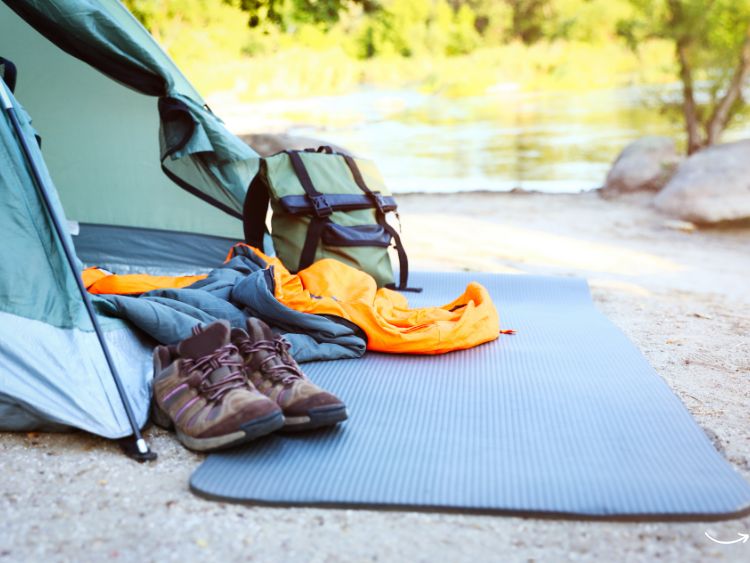Embarking on a backpacking adventure is more than just a weekend getaway; it’s an experience that demands the right gear. Whether you’re a seasoned hiker or a novice explorer, having the right backpack camping gear can make or break your adventure. But, with so many options available, how do you know what to pack? Don’t worry, we’ve got you covered! In this guide, we’ll walk you through the essentials, ensuring you’re well-equipped for whatever the wilderness throws your way.
Why Quality Gear Matters
When it comes to backpacking, quality gear isn’t just a luxury—it’s a necessity. Imagine being miles away from civilization, and your tent rips, or your water filter fails. Not only can these issues be inconvenient, but they can also pose serious risks. Investing in reliable backpack camping gear ensures you’re prepared for the unexpected and can fully enjoy your outdoor experience.
Essential Backpack Camping Gear
Here’s a rundown of the must-have items for any backpacking trip:
- Backpack: The cornerstone of your adventure. Choose one with a comfortable fit, ample storage, and durable materials. Look for features like adjustable straps, padded hip belts, and external pockets for easy access to essentials.
- Tent: Your shelter from the elements. Opt for a lightweight, weather-resistant tent that’s easy to set up. Depending on your group size, a two-person tent often strikes the perfect balance between space and weight.
- Sleeping Bag: A good night’s sleep is crucial. Select a sleeping bag rated for the temperatures you’ll encounter. Down sleeping bags are warm and compressible, making them ideal for backpacking, but synthetic options are better in wet conditions.
- Sleeping Pad: Don’t skimp on this! A sleeping pad provides insulation from the cold ground and adds comfort to your sleep setup. There are inflatable, foam, and hybrid options—choose one that suits your sleeping style and pack weight.
- Cooking Gear: A portable stove, fuel, and lightweight cookware are essentials. Opt for a stove that’s compatible with the type of fuel readily available in your destination. Don’t forget utensils, a lighter or matches, and a compact pot or pan.
- Water Filtration: Clean drinking water is a must. A portable water filter or purification tablets are lightweight solutions that allow you to refill from natural water sources. Hydration reservoirs or collapsible water bottles are great for storage.
- Clothing: Layering is key. Bring moisture-wicking base layers, insulating mid-layers, and a waterproof, breathable outer layer. Don’t forget extra socks and underwear—nothing beats fresh gear after a long day on the trail.
- Navigation Tools: A map, compass, or GPS device will keep you on track. Even if you’re familiar with the area, these tools are invaluable in case of an emergency or detour.
- First Aid Kit: Be prepared for minor injuries. Your kit should include bandages, antiseptic wipes, pain relievers, and any personal medications. A compact emergency blanket and multitool can also be lifesavers.
- Headlamp or Flashlight: Essential for navigating in the dark. Choose one with adjustable brightness and a long battery life. Don’t forget spare batteries!
- Food: High-calorie, non-perishable food is your best bet. Think freeze-dried meals, energy bars, nuts, and dried fruit. Make sure you pack enough to sustain you throughout your trip, plus a little extra in case of delays.
- Bear Canister: If you’re hiking in bear country, a bear canister is essential for storing food and scented items safely away from your sleeping area.
- Multi-Tool: A multi-tool with a knife, scissors, and screwdriver is incredibly useful for making repairs or preparing food.
- Trekking Poles: These are optional but can greatly reduce the strain on your legs and back, especially on steep or uneven terrain.
Packing Tips for Backpack Camping Gear
Packing your backpack efficiently can make your trip much more enjoyable. Here are some tips:
- Distribute Weight Evenly: Heavier items should be placed close to your back and centered to maintain balance. Lighter items can go on top or in external pockets.
- Keep Essentials Accessible: Items like your map, compass, snacks, and rain gear should be easy to reach without unpacking your entire bag.
- Use Compression Sacks: These help reduce the volume of bulky items like sleeping bags and clothing, freeing up space for other gear.
- Waterproof Your Gear: Use waterproof stuff sacks or pack covers to keep your gear dry. Even if the weather is clear, you never know when you’ll encounter a surprise downpour or river crossing.
Choosing the Right Backpack Camping Gear
With so many options available, choosing the right gear can be overwhelming. Here’s how to narrow down your choices:
- Consider the Climate: The environment you’ll be hiking in greatly influences your gear choices. For example, if you’re heading to a cold, wet area, you’ll need a warmer sleeping bag and waterproof gear.
- Duration of Your Trip: For shorter trips, you can get away with lighter, more minimalist gear. For longer excursions, durability and comfort become more important.
- Personal Preferences: Everyone’s different! Some people prefer ultralight gear to reduce pack weight, while others prioritize comfort and convenience.
- Budget: While it’s tempting to go for the cheapest options, investing in quality gear can save you money in the long run by avoiding replacements and repairs.
FAQs about Backpack Camping Gear
Q: What size backpack do I need for a multi-day hike?
A: For a multi-day hike, a backpack with a capacity of 50-70 liters is usually sufficient. If you’re going on a shorter trip or are an ultralight hiker, you might be able to get away with a smaller pack.
Q: How do I care for my backpack camping gear?
A: Proper care extends the life of your gear. Always store your sleeping bag uncompressed, clean your water filter after each use, and repair any tears in your tent immediately. Regularly inspect all your gear for wear and tear.
Q: Is it worth investing in lightweight gear?
A: Yes! Lightweight gear reduces the strain on your body and allows you to hike longer distances with less fatigue. However, balance weight with durability—some ultralight gear can be more prone to damage.
Q: Can I rent backpack camping gear?
A: Absolutely! Renting is a great option if you’re new to backpacking or trying out new gear before making a purchase. Many outdoor retailers offer rental options for everything from backpacks to tents.
Summary
Backpack camping is an adventure that offers unmatched freedom and a deep connection with nature. However, to fully enjoy your experience, having the right gear is essential. From the perfect backpack to a reliable water filter, each piece of equipment plays a crucial role in your trip’s success. Remember to pack smart, invest in quality gear, and take good care of your equipment. Whether you’re exploring a local trail or venturing into the wilderness, being well-prepared will ensure your backpacking trip is memorable for all the right reasons.
For more information on backpack camping gear, check out these authoritative sources:



